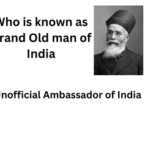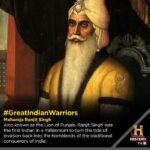Madam Bhikaiji Cama Death Anniversary: Basics Explained

Bhikaiji Cama was an Indian political activist and advocate for women’s rights. Born, on 24 September 1861, to an extremely wealthy Parsi business family, received her early education in Bombay . Influenced by an environment in which the Indian nationalist movement was taking root, she was drawn toward political issues at an early age. In 1885 she married Rustomji Cama, a well-known lawyer. She died on 13 August 1936.
Bhikaji Cama devoted her life to philanthropy and social work. She not only fought for human rights and autonomy from British rule; was also a champion of women’s rights and suffrage. The “Embodiment of Nari Shakti” she was also called by The Russians the ‘Indian Joan of Arc,’ while Indians dubbed her ‘Mother of the Revolution.’
During her stay in London, she met Dadabhai Naoroji, a strong critic of British economic policy in India, and for whom she came to work as private secretary. Cama also came in contact with other Indian nationalists, including Vir Savarkar, Lala Har Dayal, and Shyamji Krishnavarma, and addressed several meetings in London’s Hyde Park.
A stalwart of the Indian freedom struggle, she penned, published, and distributed revolutionary works such as ‘Bande Mataram’ and ‘Madan’s Talwar’.
Her contribution to the nation remains invaluable. Paris, where—together with Singh Rewabhai Rana and Munchershah Burjorji Godrej—she co-founded the Paris Indian Society. was born in Bombay. She met Dadabhai Naoroji, then president of the British Committee of the Indian National Congress,
She had the unique distinction of unfurling, in foreign land, the first version of the Indian national flag—a tricolour of green, saffron, and red stripes—at the International Socialist Congress held at Stuttgart, Germany, in 1907.
Madam Bhikaiji Cama became the first person to hoist the Indian flag on 22 August 1907. While unfurling the flag at the International Socialist Conference in Stuttgart, Germany, she appealed for equality and autonomy from the British which had taken over the Indian sub-continent.






0 Comments